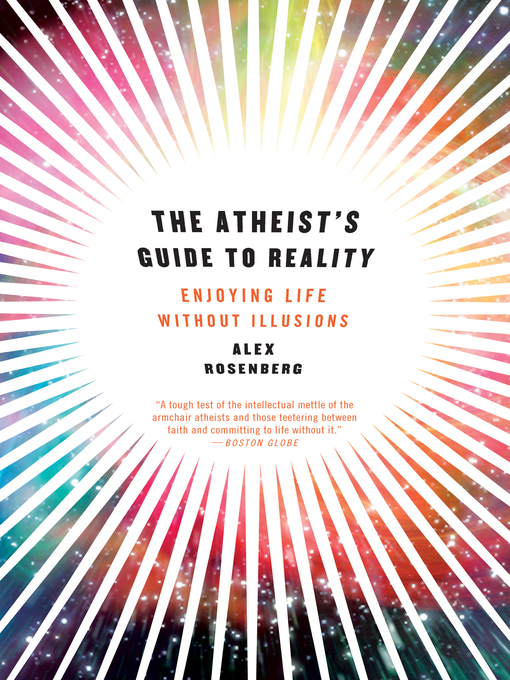A book for nonbelievers who embrace the reality-driven life.
We can't avoid the persistent questions about the meaning of life-and the nature of reality. Philosopher Alex Rosenberg maintains that science is the only thing that can really answer them—all of them. His bracing and ultimately upbeat book takes physics seriously as the complete description of reality and accepts all its consequences. He shows how physics makes Darwinian natural selection the only way life can emerge, and how that deprives nature of purpose, and human action of meaning, while it exposes conscious illusions such as free will and the self. The science that makes us nonbelievers provides the insight into the real difference between right and wrong, the nature of the mind, even the direction of human history. The Atheist's Guide to Reality draws powerful implications for the ethical and political issues that roil contemporary life. The result is nice nihilism, a surprisingly sanguine perspective atheists can happily embrace.- Reading and Ruminating
- Staff Reads
- Big Bowl of Cozy: Soups, Slow, and Multicookers
- Pumpkin Spice and Everything Nice
- Resistance
- For Fans of The Hunting Wives
- Dark Academia
- Literary Longlists
- Washington State Authors
- Women in Translation
- Flower Power
- Short 'n' Sweet
- Bans off Our Books
- See all ebooks collections
- Hear the Holidays ❄️
- Available now Audiobooks
- Just Added Audiobooks
- Hear the Dark Academia
- Lively Listens: Audiobooks with Multiple Narrators
- Queerly Beloved
- Award Winning Audiobooks
- Quick Stories
- Full Cast Audiobooks
- Pacific Northwest Authors & Settings
- Agatha Christie and Friends
- Books about Books
- Uplifting Listens
- See all audiobooks collections
- News & Politics
- Celebrity
- Health & Fitness
- Food & Wine
- Fashion
- Tech & Gaming
- Business & Finance
- Revistas
- Cars & Motorcycles
- Home & Garden
- See all magazines collections

